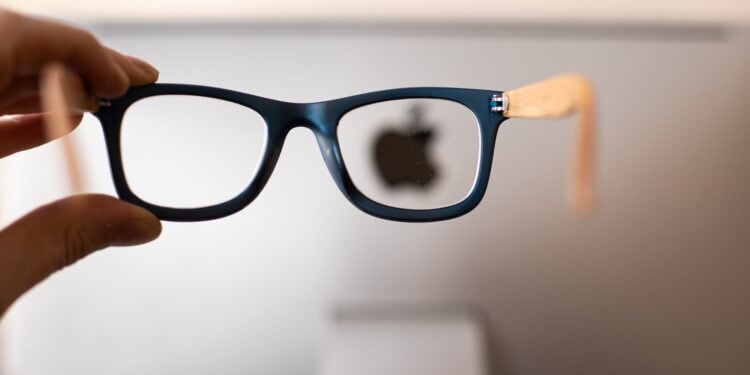Apple is working hard on its own smart glasses, which could be unveiled in 2026. The reason for this is competition from Meta, which already has a display-based pair of glasses on the market with the Ray-Ban smart glasses. To accelerate development, Apple has halted work on the Vision Air and is now fully concentrating on bringing the glasses to market.
Apple Glasses are intended to be more than just a technical device. They are designed as a fashionable accessory that stands out visually from bulky smart glasses. At the same time, they are expected to be equipped with a range of intelligent functions that make everyday life easier. Initial rumors and information reveal the role Siri will play, how Apple is following Meta's example, and why the glasses will initially remain closely linked to the iPhone.
Fashionable design with choices
Apple's glasses will focus on a fashionable appearance from the start. Instead of a limited selection like the first Meta Ray-Bans, there will be multiple options for frames, temple materials, colors, and sizes. This allows for a customized look. It's still unclear how slim Apple will be able to keep the design, as the battery, chip, and cameras require space. What is certain, however, is that Apple intends to follow a similar path to the Apple Watch, which also launched as a lifestyle product.
Siri as the heart of the control system
A central feature of Apple Glasses is voice control via Siri. Apple has fundamentally redesigned the voice assistant in recent years, relying on large language models. Starting in spring 2026, a significantly more powerful version of Siri will be available, comparable to services like ChatGPT, Gemini, or Claude. The glasses will be largely controlled by voice. Thanks to the integrated cameras, Siri will be able to recognize and respond to context. This includes answering questions, navigating, providing real-time translations, identifying plants, animals, or landmarks, remembering locations like a parking space, playing music, sending messages, and much more.
Functions similar to Meta
Although the first generation of Apple glasses likely won't include a display, Apple is heavily basing its functionality on the Meta Ray-Bans. These include taking photos and videos, playing audio content such as music, podcasts, and audiobooks, making phone calls, sending messages, describing the environment, identifying objects using visual intelligence, providing directions, and providing real-time translations. This means Apple covers almost the same range of functions as Meta AI.
Dependence on the iPhone
The glasses will have their own chip based on Apple Watch technology. However, they won't be usable independently. Many tasks will require a connection to the iPhone, including AI processing and performance-intensive functions. This tight coupling has the advantage of preserving the glasses' battery life by offloading computationally intensive tasks to the iPhone.
Schedule and price
Rumors suggest Apple's glasses could be unveiled in late 2026 and launched in early 2027. There's no official pricing information yet. Meta's Ray-Bans start at around $380. Apple could aim for a similar price, but as with other products, a higher entry-level price in the premium segment is also possible.
- Apple removes climate-neutral label – but goals remain the same
- Apple pursues rare strategy in launching smart glasses
Apple glasses as the next big project in the wearable market
Apple Glasses are considered one of the most exciting products Apple could release in the coming years. They combine fashion with technology, feature a powerful new version of Siri, and are also based on features Meta has already successfully introduced. They won't offer any independence in the first generation, as an iPhone will still be required for many functions. With a possible market launch in early 2027, Apple could open a new chapter in the smart glasses sector and decisively shape the competition for the best smart glasses. The best products for you: Our Amazon storefront offers a wide selection of accessories, including those for HomeKit. (Image: Shutterstock / Girts Ragelis)
- Apple Vision Air: Why the headset may never be released
- Apple Vision Pro: FCC confirms revised headset
- Apple announces new immersive content for Apple Vision Pro
- Apple Vision Pro: R2 chip should significantly increase performance
- iPad mini 8: All rumors and information at a glance





